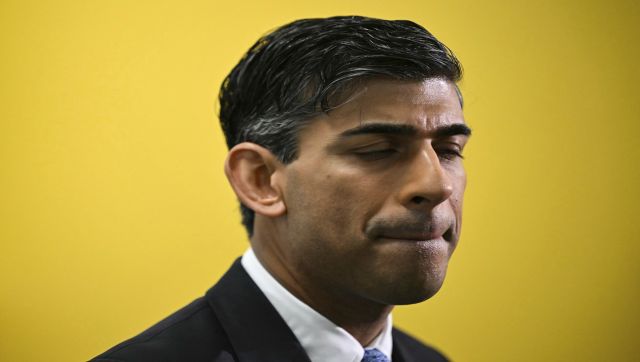British Prime Minister Rishi Sunak expressed profound regret on Monday for those who lost family members during the Covid pandemic, addressing questions about his actions as finance minister amid the global health crisis. Sunak faced queries at the public inquiry into the UK’s pandemic response, particularly regarding the impact of his “Eat Out to Help Out” scheme on the spread of COVID-19. However, he commenced the session by conveying his deep apologies to all those who suffered the loss of loved ones due to the pandemic. Additionally, Sunak disclosed that he had lost WhatsApp messages sent during the crisis as they had not transferred to his new phones. Last week, Boris Johnson, the prime minister at the time, stated that the app had seemingly erased its chat history on his phone for the first six months of 2020. During the inquiry, Sunak shared his role in ensuring that Johnson was aware of the economic implications of lockdown decisions amid the virus spread. He downplayed any frustration over policy changes, attributing his responses to evolving scientific advice. Sunak acknowledged the significant cost of his wage subsidy policy for pandemic-affected workers, noting the delayed impact of repayment and the widespread consequences now being grappled with by everyone. But it is Sunak’s scheme to get people using hospitality again in August 2020 by picking up a chunk of the bill that is likely to be the main focus of attention. In a message disclosed earlier to the inquiry, one government scientific adviser, Angela McLean, called Sunak “Dr Death, the Chancellor” over concerns about the scheme. However, cabinet minister Michael Gove said on Sunday that “it was an effective way of ensuring that the hospitality industry was supported through a very difficult period”. The inquiry has already heard from prominent figures including Johnson’s controversial ex-aide Dominic Cummings and Patrick Vallance, who was the government’s chief scientific adviser at the time. Vallance told the inquiry Sunak’s scheme was “highly likely” to have spurred deaths. One of his diary entries recorded Cummings saying Sunak “thinks just let people die and that’s OK”. Sunak has denied the comment and highlighted that Vallance confirmed he did not hear him say it. According to material understood to have been shared with the inquiry’s main participants, Sunak told a journalist last year he had not been “allowed to talk about the trade-off” between the economic and social impacts of lockdowns and their benefits to suppressing the virus. He refuted that claim on Monday, saying he had the “ability from the beginning and throughout to feed into decision making”. Sunak’s inquiry appearance comes as right-wingers in his ruling Conservative party meet to discuss how they will vote after a crunch debate Tuesday on his controversial immigration proposals. The Tories, in power since 2010, are currently lagging well behind main opposition party Labour in opinion polls. A survey released by Ipsos last week found that 52 percent of voters now had an unfavourable view of Sunak. His approval ratings have fallen from minus nine in January to minus 28. The political and financial fallouts of the pandemic have had far-reaching consequences for the UK. Johnson was forced from office last year after public anger at revelations about a series of Covid lockdown-breaching parties dubbed “Partygate”. Nearly 130,000 people died with Covid in Britain by mid-July 2021, one of the worst official per capita tolls among Western nations. With inputs from AFP
Sunak faced queries at the public inquiry into the UK’s pandemic response, particularly regarding the impact of his ‘Eat Out to Help Out’ scheme on the spread of COVID-19
Advertisement
End of Article


)

)
)
)
)
)
)
)
)



